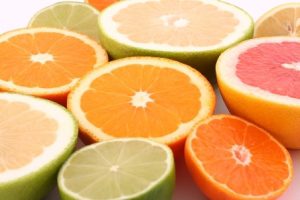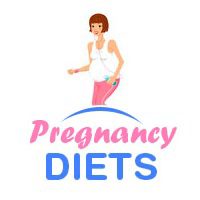 Giving birth does not mean that you can suddenly eat anything you want again. There are several foods that while breastfeeding infants you should avoid. Breastfeeding is the best way to give your infant as many nutrients as possible. However, things you eat can cause your child to suffer from reflux, gas, or colic.
Giving birth does not mean that you can suddenly eat anything you want again. There are several foods that while breastfeeding infants you should avoid. Breastfeeding is the best way to give your infant as many nutrients as possible. However, things you eat can cause your child to suffer from reflux, gas, or colic.
Coffee
Coffee is one of many liquids that contain a great deal of caffeine. Tea and caffeinated sodas can also fall into this category. Caffeine is a stimulant that travels in the blood stream, so it is absorbed into the breast milk. Caffeine not only will keep you awake, but your new baby as well. It also can cause stomach discomforts and gas. Many babies with colic have it because their moms drink a cup of coffee in the morning.
Chocolate
Many people do not realize it, but chocolate also has caffeine in it. Luckily, there is not nearly as much caffeine as a cup of coffee. In fact, there is only 20 percent as much caffeine in one serving of dark chocolate. This means that you do not have to go completely chocolate free, you just need to wait until you finish nursing your baby. This will allow your body to process the caffeine before the next feeding.
Oranges
Oranges and grapefruits can cause major grief with an infant. While you will get massive amounts of Vitamin C from the citrus fruit, you will also be sending acids in your breast milk. Citric acid can aggravate reflux and cause the urine to be acidic. This will cause the infant to spit up and have diaper rashes.
Broccoli
An infant’s stomach is still very immature and cannot handle gassy foods. This includes broccoli, beans, and cauliflower. Unfortunately, gassy foods can take a while to take effect on an infant. This means that if you eat them at lunch, you may notice the colic will become worse in the evening around bedtime. Instead of treating the colic, try refraining from eating gassy foods and see if that helps your infant.
Alcohol
Much to the displeasure of many, drinking one glass of wine or one bottle of beer a day will not hurt your child in the least. In fact, studies have shown that one bottle of beer can increase your milk supply. Where you run into problems is if your drinking exceeds that one glass a day, or if it becomes habitual. Alcohol can cause your infant to be lethargic, sleep real deep, and increased weight gain.
Spicy Foods
Just as citric acid in oranges can irritate your baby’s sensitive stomach, spicy foods can cause colic in an infant. Red peppers, hot salsa, Tabasco sauce, and jalapeno pepper should all be avoided while nursing. There are ways to spice up your food without spicy ingredients, including ginger.
Peanuts
Many people know that you are not to give peanut butter to an infant under the age of nine months; however, few people know they should not eat peanuts while nursing. In fact, all tree nuts should be avoided to prevent the infant from developing an allergy. While they will not have colic problems, they could develop weird rashes and hives.
Wheat
Wheat is something that should only be avoided by moms who notice their infants are exhibiting problems. Wheat allergies will cause an infant to have severe colic and bloody stools. If you suspect your child may be suffering from a wheat allergy, you need to stop eating wheat products for three weeks and then look at how the child is behaving. If the symptoms have improved, the baby likely is allergic to colic.
Dairy
More moms are beginning to notice that their consumption of calcium rich milk is causing their baby colic and gassiness. It can also cause eczema and insomnia. Luckily, infants that display lactose intolerance do not always have it their entire life. As the stomach improves, so does their ability to digest dairy products. This is also why you should never give straight milk to a child under the age of one.
Allergy Causing Foods
Corn, shellfish, and eggs are three foods that should be avoided if you have any allergies that run in your family. You are pre-
Mackerel
Mackerel and other high mercury fish should be avoided during pregnancy and while breastfeeding. That is because the mercury can be absorbed into the breast milk. You will also want to watch your consumption of fish in general to make sure that your mercury levels do not build up. The EPA and the FDA want to make sure that women of childbearing age, pregnant women, nursing women, and young children are all aware of the amount of safe fish they should consume.
